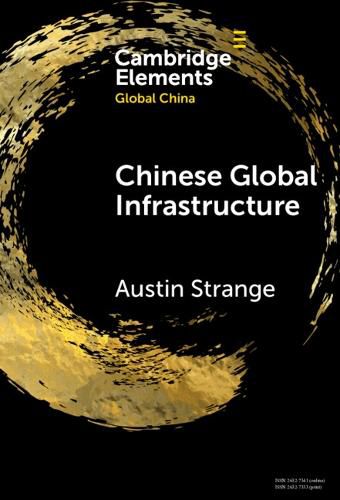Readings Newsletter
Become a Readings Member to make your shopping experience even easier.
Sign in or sign up for free!
You’re not far away from qualifying for FREE standard shipping within Australia
You’ve qualified for FREE standard shipping within Australia
The cart is loading…






Infrastructure is at the heart of China's presence in global development and is also central to larger debates about Chinese influence. This Element provides a comprehensive account of major Chinese government-financed infrastructure projects in the Global South since 1949. Using new datasets, it demonstrates that Chinese global infrastructure is distinct in terms of its historical tenacity and massive contemporary scope. But this does not imply that contemporary Chinese global infrastructure or the Belt and Road Initiative should be studied in a vacuum. Historical and comparative perspectives show that contemporary projects often emerge based on similar political logics to those that shaped infrastructure investment in earlier periods of Chinese history and other international contexts. The Element then examines how infrastructure projects have created both purposeful and unintended sources of influence by serving as valuable but risky political capital for host country governments as well as the Chinese government. This title is also available as Open Access on Cambridge Core.
$9.00 standard shipping within Australia
FREE standard shipping within Australia for orders over $100.00
Express & International shipping calculated at checkout
Infrastructure is at the heart of China's presence in global development and is also central to larger debates about Chinese influence. This Element provides a comprehensive account of major Chinese government-financed infrastructure projects in the Global South since 1949. Using new datasets, it demonstrates that Chinese global infrastructure is distinct in terms of its historical tenacity and massive contemporary scope. But this does not imply that contemporary Chinese global infrastructure or the Belt and Road Initiative should be studied in a vacuum. Historical and comparative perspectives show that contemporary projects often emerge based on similar political logics to those that shaped infrastructure investment in earlier periods of Chinese history and other international contexts. The Element then examines how infrastructure projects have created both purposeful and unintended sources of influence by serving as valuable but risky political capital for host country governments as well as the Chinese government. This title is also available as Open Access on Cambridge Core.